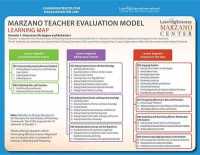Full Description
This book explores how multilingualism and multiculturalism act as critical markers of glocalization, identity formation, and cultural preservation in a changing world. As a multi-ethnic and multicultural country marked by extensive linguistic and cultural diversity, the Namibian landscape is a unique context showcasing the benefits of multilingualism and multiculturalism. Through critical, empirical, practical and theoretically engaged debates, this book highlights issues around intercultural and multilingual education, the language question in Africa, cultural practices and their significance and preservation thereof, ways of fostering unity in diversity through languages, and the means to liberate the creative, artistic and cultural voices through self-publication. This book is useful for undergraduate and graduate students and researchers on Namibian and Southern African linguistics, multilingual and multicultural enthusiasts, anthropologists, and African studies scholars.
Contents
SECTION ONE: MULTILINGUALISM AS A MULTICULTURAL MARKER.- Navigating Multi-Culturalism in Higher Education in a Multi-Ethnic Country Cynthy Haihambo.- Windhoek as a meeting place of Namibian voices: Rural to urban migration shaping the multilingual profile of the capital city.- The Silozi Language Question in Namibia's Multilingual Zambezi Region.- Reading to learn in a multilingual Namibian context with teaching and learning resource constraints Belden Liswaniso.- Did it have to be English? A Comparative Study of Anglophone Language Planning and Multilingualism in Kenya and Namibia.- SECTION TWO: MULTICULTURAL PRACTICES IN NAMIBIA.- From supposedly 'no culture' to 'making my own culture': Some Provocations on Culture and Multi/Transculturalism in Namibia.- Exploring rhetorical mechanisms in preserving cultural practices: A case of ekaka (dried wild spinach) in Aandonga culture.- Embracing the past in order to celebrate the future: Multiculturalism in Aawambo and Vakavango peoples' fashion in Namibia as expressions of intercultural intertwinements.- Preserving Indigenous Knowledge: The significance of omaludi eengobe Festival in Oshiwambo culture: the case study of Etomba village.- Could a Zine - A limited DIY Self-publication Liberate the Creative, Artistic and Cultural Voices of UNAM Staff and Students?.








